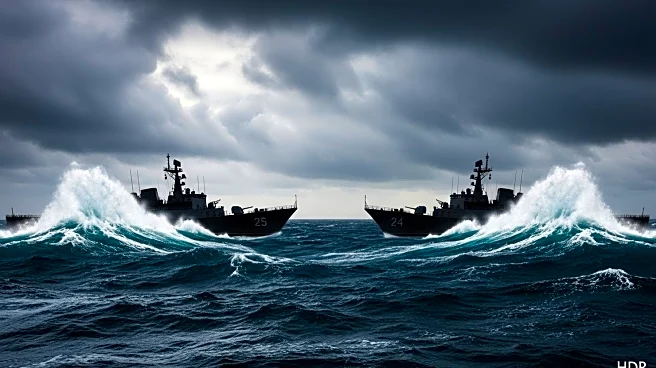What's Happening?
Under President Ferdinand Marcos Jr., the Philippines has seen a deterioration in relations with China, prompting Manila to seek support from the United States in maritime disputes. Recent incidents include accusations of reckless actions by the Chinese Coast Guard, leading to vessel collisions near Second Thomas Shoal. The Philippines has engaged in joint military exercises with Japan and Vietnam, and maritime exercises with Australia, Japan, and the U.S. The situation has intensified with China's approval of a National Nature Reserve at Scarborough Shoal and aggressive actions by the Chinese Coast Guard near Thitu Island.
Why It's Important?
The escalating tensions between China and the Philippines in the South China Sea have significant implications for regional security and international relations. The Philippines' alignment with the U.S. and other allies highlights the geopolitical stakes in the region. China's assertive actions challenge international maritime norms and could lead to further diplomatic and military confrontations. The situation affects trade routes and the strategic balance in the Indo-Pacific, with potential consequences for global maritime security and economic stability.
What's Next?
The Philippines is likely to continue strengthening its alliances with the U.S. and other regional partners to counter China's maritime claims. The ongoing disputes may lead to increased military presence and joint exercises in the South China Sea. Diplomatic efforts to resolve the tensions are expected, but the situation remains volatile, with potential for further confrontations. The international community will closely monitor developments, as they could impact broader geopolitical dynamics in the region.










